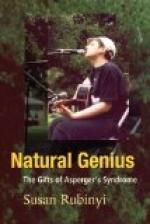The brothers left for Oxford at the mature age—not a whit too late for any minds—of seventeen or eighteen. At the University there were other words than the songs of Apollo. The Great Revolution was already on the carpet, and it was to be fought out with weapons not found in the logical armory of Aristotle. The brothers were royalists, of course; and Henry, before the drama was played out, like many good men and true, tasted the inside of a prison—doubtless, like Lovelace and Wither, singing his heartfelt minstrelsy behind the wires of his cage. He was not a fighting man. Poets rarely are. More than one lyrist—as Archilochus and Horace may bear witness—has thrown away his shield on the field of battle. Vaughan wisely retired to his native Wales. Jeremy Taylor, too, it may be remembered, was locking up the treasures of his richly-furnished mind and passionate feeling within the walls of those same Welsh hills. Nature, alone, however, is inadequate to the production of a true poet. Even Wordsworth, the most patient, absorbed of recluses, had his share of education in London and travel in foreign cities. Vaughan, too, early found his way, in visits, to the metropolis, where he heard at the Globe Tavern the last echoes of that burst of wit and knowledge which had spoken from the tongue and kindled in the eye of Shakspeare, Spenser and Raleigh. Ben Jonson was still alive, and the young poets who flocked to him, as a later age worshipped Dryden, were all “sealed of the tribe of Ben.” Randolph and Cartwright were his friends.
Under these early inspirations of youth, nature, learning, witty companionship, Vaughan published his first verses—breathing a love of his art and its pleasures of imagination, paying his tribute to his paternal books in “Englishing,” the “Tenth Satyre of Juvenal,” and not forgetting, of course, the lovely “Amoret.” A young poet without a lady in his verse is a solecism which nature abhors. All this, however, as his biographer remarks, “though fine in the way of poetic speculation, would not do for every-day practice.” Of course not; and the young “swan” turned his wary feet from the glittering stream to the solid land. The poet became a physician. It was a noble art for such a spirit to practise, and not a very rude progress from youthful poesy if he felt and thought aright. There was a sterner change in store, however, and it came to him with the monition, “Physician, heal thyself!” He was prostrated by severe bodily disease, and thenceforth his spirit was bowed to the claims of the unseen world. The “light amorist” found a higher inspiration. He turned his footsteps to the Temple and worshipped at the holy altar of Herbert. His poetry becomes religious. “Sparks from the Flint” is the title which he gives his new verses, “Silex Scintillans.” After that pledge to holiness given to the world, he survived nearly half a century, dying at the mature age of seventy-three—a happy subject of contemplation in the bosom of his Welsh retirement, passing quietly down the vale of life, feeding his spirit on the early-gathered harvest of wit, learning, taste, feeling, fancy, benevolence and piety.




